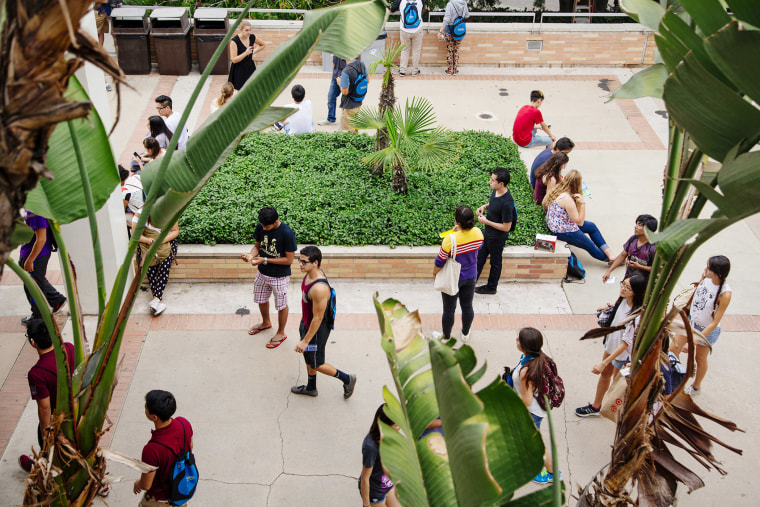The White House plans to unveil the latest component of its plan to help colleges better handle sexual assault on campus on Friday — and the new campaign is focused on men, in particular.
“It’s On Us” aims to create more collective responsibility for preventing sexual assault and violence. It encourages students to intervene in situations where someone appears to be preying on another student, according to the Associated Press.
Vice President Joe Biden alluded to a new focus for preventing campus sexual assault in remarks made in April, when he emphasized the need to abandon outdated attitudes on sexual assault prevention that lead to victim blaming. His comments at the time coincided with the release of an initial report on campus sexual assault by the White House task force assigned to investigate the issue.
"I can't say often enough it doesn't matter what coat she was wearing, whether she drank too much, whether it was in the back of a car, in her room, on the street, it does not matter. It does not matter if she initially said yes and changed her mind and said no. No means no, wherever it is stated," Biden said in April.
Experts in sexual assault prevention say bystander intervention and social media — both part of the new campaign — should be part of a comprehensive approach that encourages communities to take responsibility for preventing violence and being supportive when someone is victimized. The bystander intervention strategy teaches people how to look at social interactions for signs that a person might be about to commit a sexual assault and how to step in to prevent it.
“We firmly believe that the most effective way to do bystander intervention is a comprehensive approach that engages all community members,” Jane Stapleton, co-director of Prevention Innovations at the University of New Hampshire, which worked with the White House task force on a training program, told msnbc. “Students at every level of their college career — we need to engage grad students because they’re often the ones teaching labs, and engage faculty members and staff members, everyone in the environment around college students.”
The White House is also set to unveil model policies for colleges and universities to use as they revamp their practices by the end of September. Bystander intervention programs are already used by colleges and universities across the country, often as part of new student orientation. But one size can’t fit all, and the success of the campaign will lie in how universities and communities adapt it to their own needs.
Laura Dunn, a sexual assault survivor who spoke at a round table held by Democratic Missouri Sen. Claire McCaskill, told msnbc that campaigns like this must come hand in hand with better responses from schools or survivors will end up disappointed in the system. “If they receive the messages and they come forward and report and nothing is done, then you give the opposite message from what you intended. Every time there is a report, take it seriously, help them access resources for medical help and counseling, move promptly on school disciplinary processes, contact police,” Dunn said.
A bipartisan group of senators has introduced legislation that would increase the range of possible penalties for schools that don’t respond adequately to campus sexual assault and violence. It would also require schools to conduct surveys to better gauge what is happening on campus. In addition, the White House established Notalone.gov to serve as a resource for survivors of sexual assault and gender-based violence.
Bringing the spotlight of the White House to sexual assault is a good start, advocates say, but more attention is needed on issues like dating violence and stalking as well. “What's needed is a focus on how to recognize and dismantle the power structures that enact and perpetuate violence in the first place,” Dana Bolger, founding co-director of Know Your IX told msnbc in an email. “Being a proactive bystander should mean it's on you to learn how to recognize the signs of an abusive relationship and connect a survivor with support services. Or if you attend a school that doesn't expel repeat rapists, it's on you to call out your school for that and hold it accountable.”
